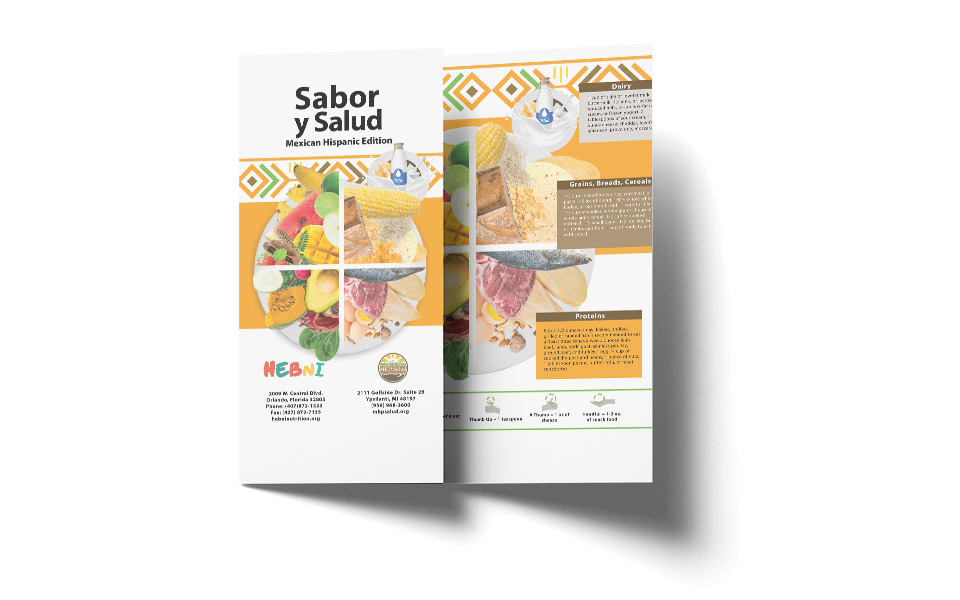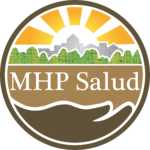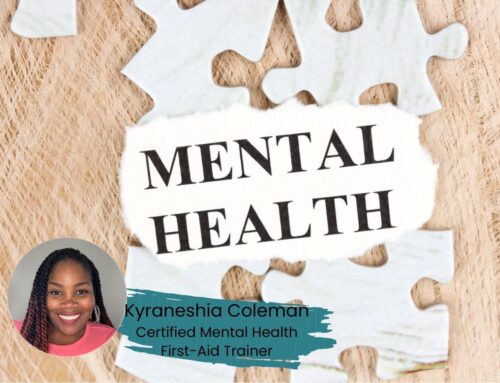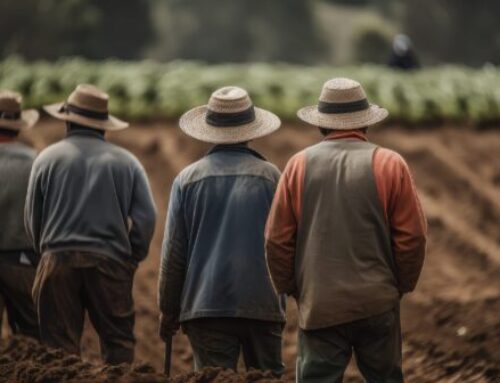Community Health Workers are Helping the Rio Grande Valley’s Residents Through the Pandemic
June 2020 Rio Grande Valley, TX
The coronavirus outbreak is creating unique challenges for Hispanic and Latino individuals that live within the tight-knit border communities (often referred to as colonias) of the lower Rio Grande Valley in Texas. In these regions, where community and medical resources are often scarce, many residents are unsure of what the best practices are to keep them safe during the COVID-19 pandemic. This is especially concerning as Hispanics and Latinos have higher rates of chronic conditions, such as diabetes1, which puts them at greater risk for COVID-19 infection.2
Across MHP Salud’s initiatives, Community Health Workers (CHWs) are stepping up to ensure that individuals are informed and receive the help they need during these difficult times. CHWs are trusted members of their community who empower their peers through education and connections to health and social resources. Their understanding of their community allows them to be effective at conducting outreach in areas that other health professionals don’t have access to. For example, CHWs may set up informational tables, outreach, and hold educational sessions in facilities that community members are already familiar and comfortable with, like churches and community centers. Perhaps what makes CHWs and CHW-led programs most unique is that they are designed with the idea that they can be implemented anywhere, across a variety of formats and populations.
Community Health Workers and COVID-19
For many in the colonias, the services that we provide are vital to their health and well-being so it’s especially important that we remain open. CHWs in our programs were able to easily transition into strategies that follow safety and social distancing guidelines from national and global health organizations.
“When people were told to social distance, I knew the transition for our CHWs wasn’t going to be difficult. Our CHWs already make phone calls to help participants, use the internet for resources, and use apps to support our program efforts. The difficult part was dealing with the closures of the places that we hold our group sessions in. Many of our participants really enjoy being able to participate in discussions and activities in person and within a safe space. We had to strategize ways to ensure participants could still feel these benefits from our programs.”
To keep individuals who need to visit us in person safe, our CHWs have made themselves available by appointment only. A maximum of two individuals are allowed to enter our facility at a time and they are required to practice safe social distancing while inside. Additionally, anyone who enters our office must wear a mask. For individuals who cannot get to us or have been participating in our sessions off-site, we’ve ramped up virtual and phone support so that we can still provide the help they need.
MHP Salud CHWs Increase Virtual Support in the Community
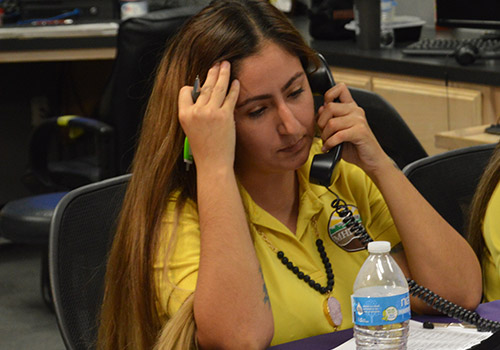
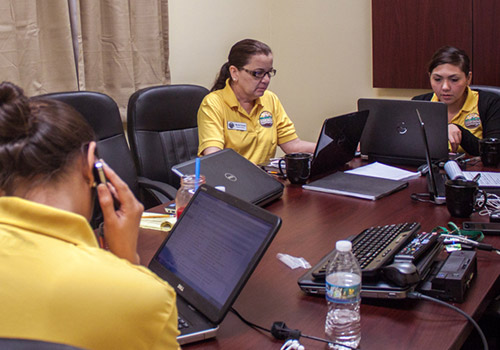
A critical aspect of providing virtual services is to first ensure that community members who use our services know that MHP Salud is still operating. In this regard, the use of social media platforms for outreach has been extremely effective. Announcements that contain information on how community members can get in touch directly with CHWs are shared frequently and to great success. However, not everyone in the communities we serve uses social media on a regular basis. In order to reach these specific community members, our CHWs also contact current and past participants of MHP Salud programs with phone calls.
MHP Salud CHWs are Helping Individuals Maintain their Health with One on One Phone Sessions
An example of how our programs are being adapted to be effective through phone calls can be seen in our Healthy Living program, Vivir una Vida Plena. The program focuses on the prevention and management of chronic diabetic kidney disease through group educational sessions. The CHWs in this program are providing printed packets of health information that they would typically go over in person. They deliver these packets to each individual who enrolls in the program using a no-contact drop off method to avoid putting anyone at risk of infection.
Once participants have the packets, CHWs schedule calls with each individual throughout the month to review the information for each educational session. For example, the printed packets given to participants include our healthy plate brochure, Sabor y Salud. The brochure includes information on nutrition labels, portion sizes, and overall tips to make meals healthier. During the session on nutrition, CHWs review the brochure with participants and answer any questions they may have. Activities like this help remind community members of the benefits of making healthier food choices despite the changes made in food stores to maintain social distance.
Our CHWs Find Ways to Connect Individuals to Care
CHWs in our Navigator program are providing application assistance to individuals who qualify for government assistance programs like Medicaid with a direct phone line that individuals can call to receive help. They’ve been making individuals aware by posting flyers on social media and calling former and current participants to ask them to share our contact information within their community networks.
People are also able to learn about MHP Salud’s Connect and Care Initiative through our partnerships with regional radio stations, which provide critical information to the community during their live broadcasts. Currently, the programs have extended the ad period and have adjusted the script to inform individuals of the increased phone support.
This brochure, created by MHP Salud and Hebni Nutrition Consultants, Inc., was designed to help Hispanic and Latino Communities build nutritious plates with familiar fresh foods. Inside you will find information on portion sizes, nutrition facts, and tips to help individuals adopt healthier eating habits. It is available for immediate download after registration to our resource portfolio. Sign up for free!
CHWs Find Interesting Teachable Moments in Unique Times
Interestingly, MHP Salud CHWs are also inadvertently teaching residents soft technology skills. For example, they are showing participants how to download and use apps to safely purchase groceries and other necessities. This allows our participants who are at high risk for COVID-19 to remain at home but still receive the things they need.
Additionally, our CHWs found themselves as a source of overall social support for their community members. The one on one calls CHWs are making to participants allow for engaging conversations that individuals appreciate considering the stress that comes with the disruption to daily life the coronavirus is causing.
“Our community knows that they can count on us, it has been a difficult time for all during this pandemic time. It has been very rewarding for me to have been given the opportunity to continue serving my community during such difficult times.”
Our CHWs are showing that they have the ability to adapt during the current COVID-19 situation. This is further proof that CHW programs are flexible enough to be implemented anywhere, under a variety of different circumstances. This also demonstrates that Community Health Workers have been, and continue to be, a vital lifeline for individuals who need health and social resources during crucial times.
About MHP Salud
MHP Salud has over thirty years of experience implementing CHW programs and training organizations looking to start and/or strengthen their own CHW programs. For more information about MHP Salud, our services, and how we can help you, please email us at info@mhpsalud.org

